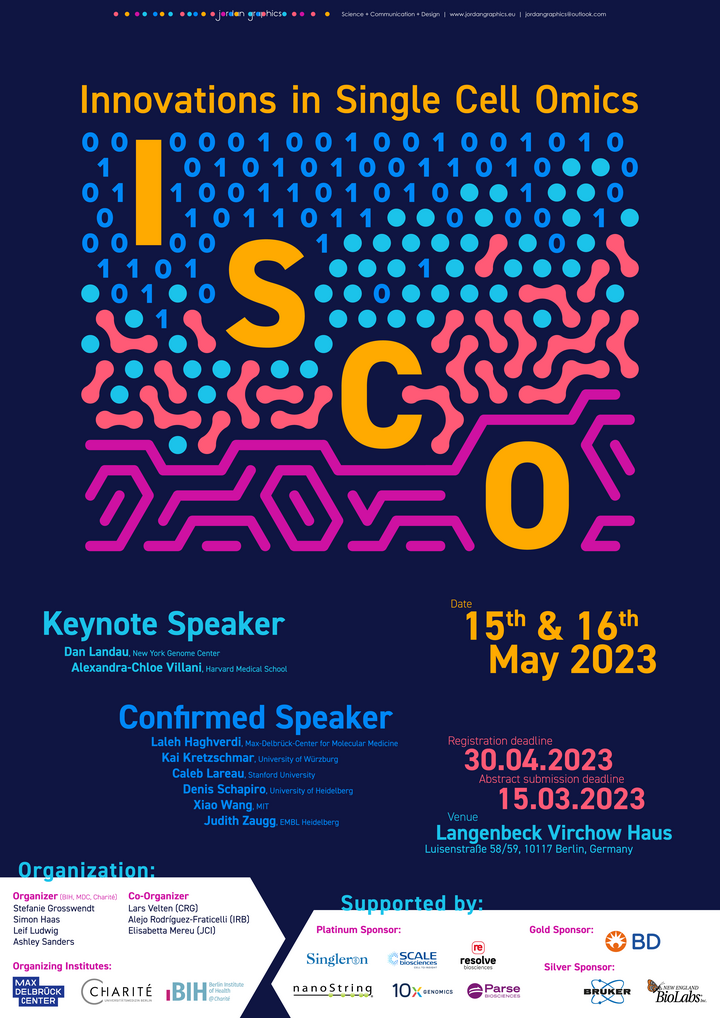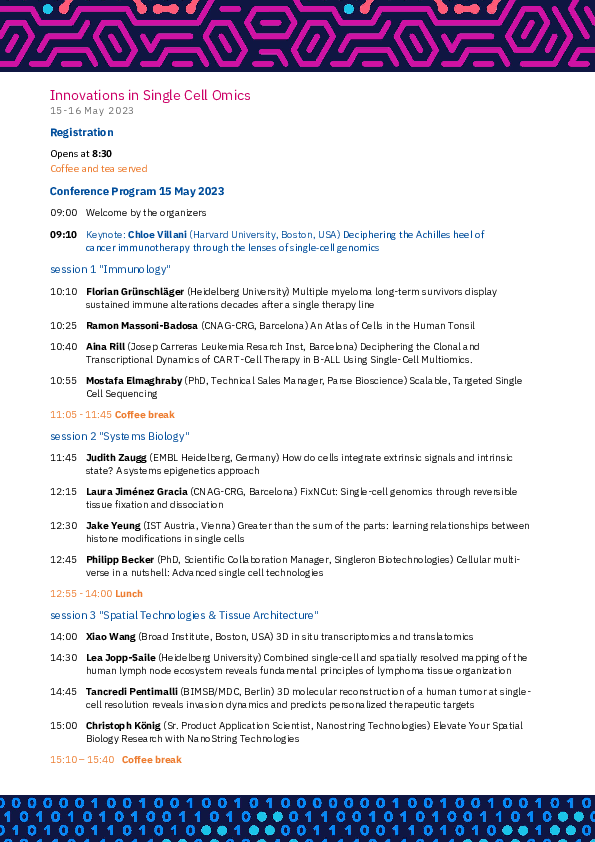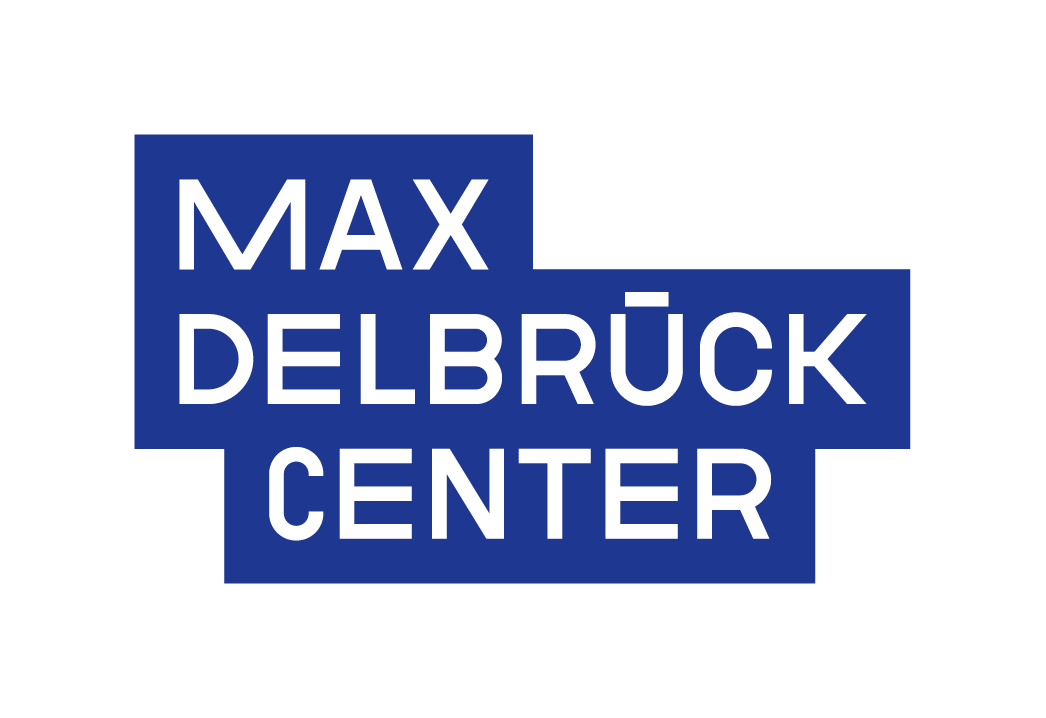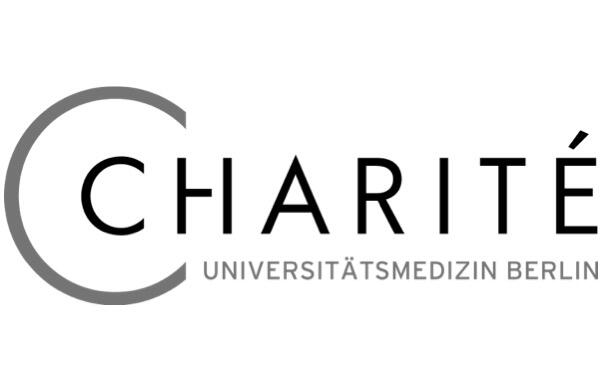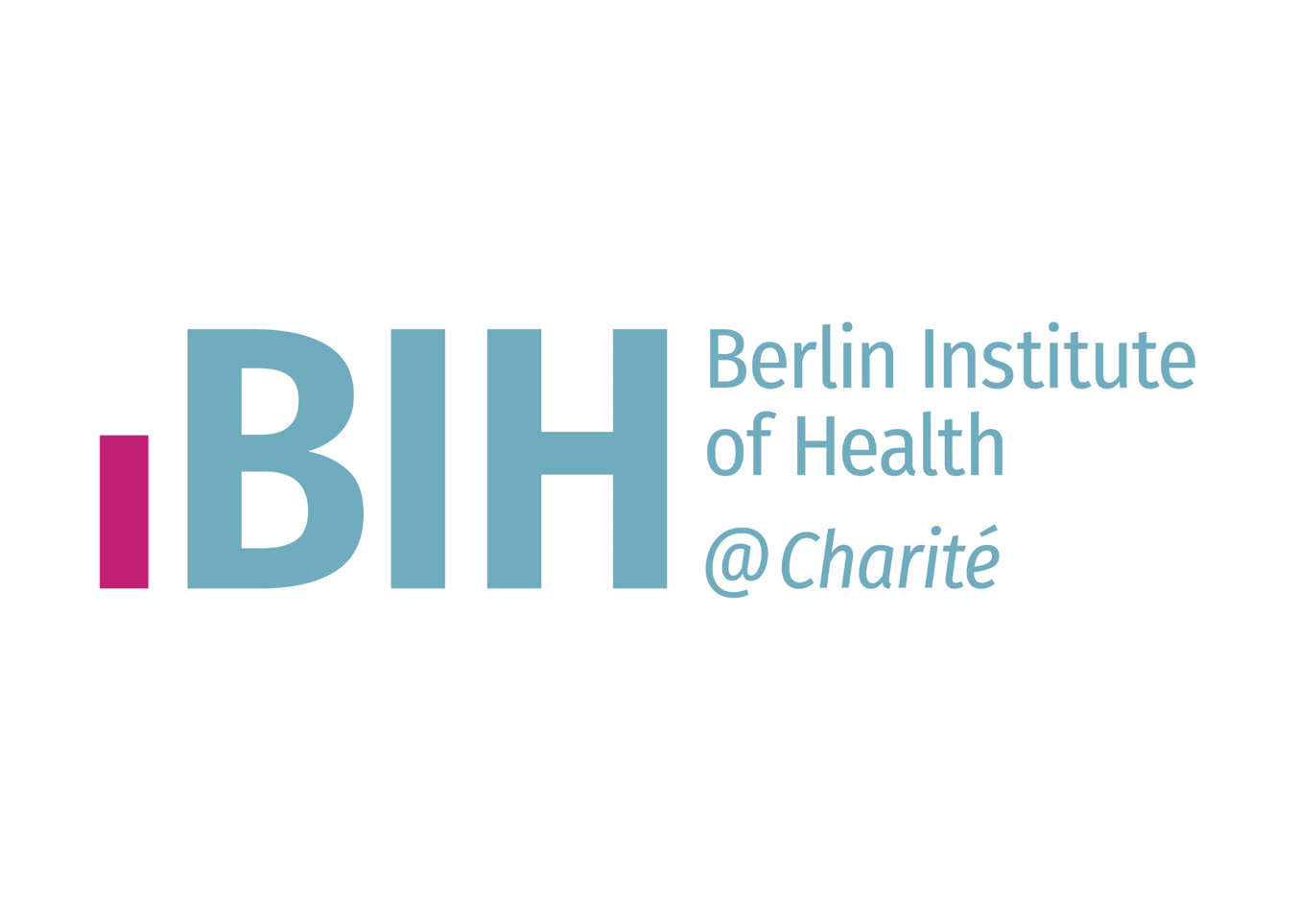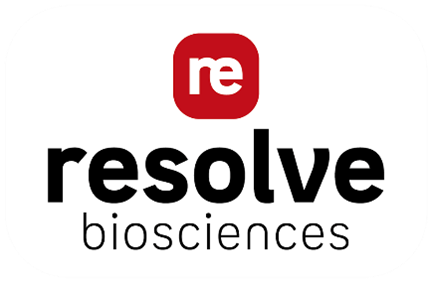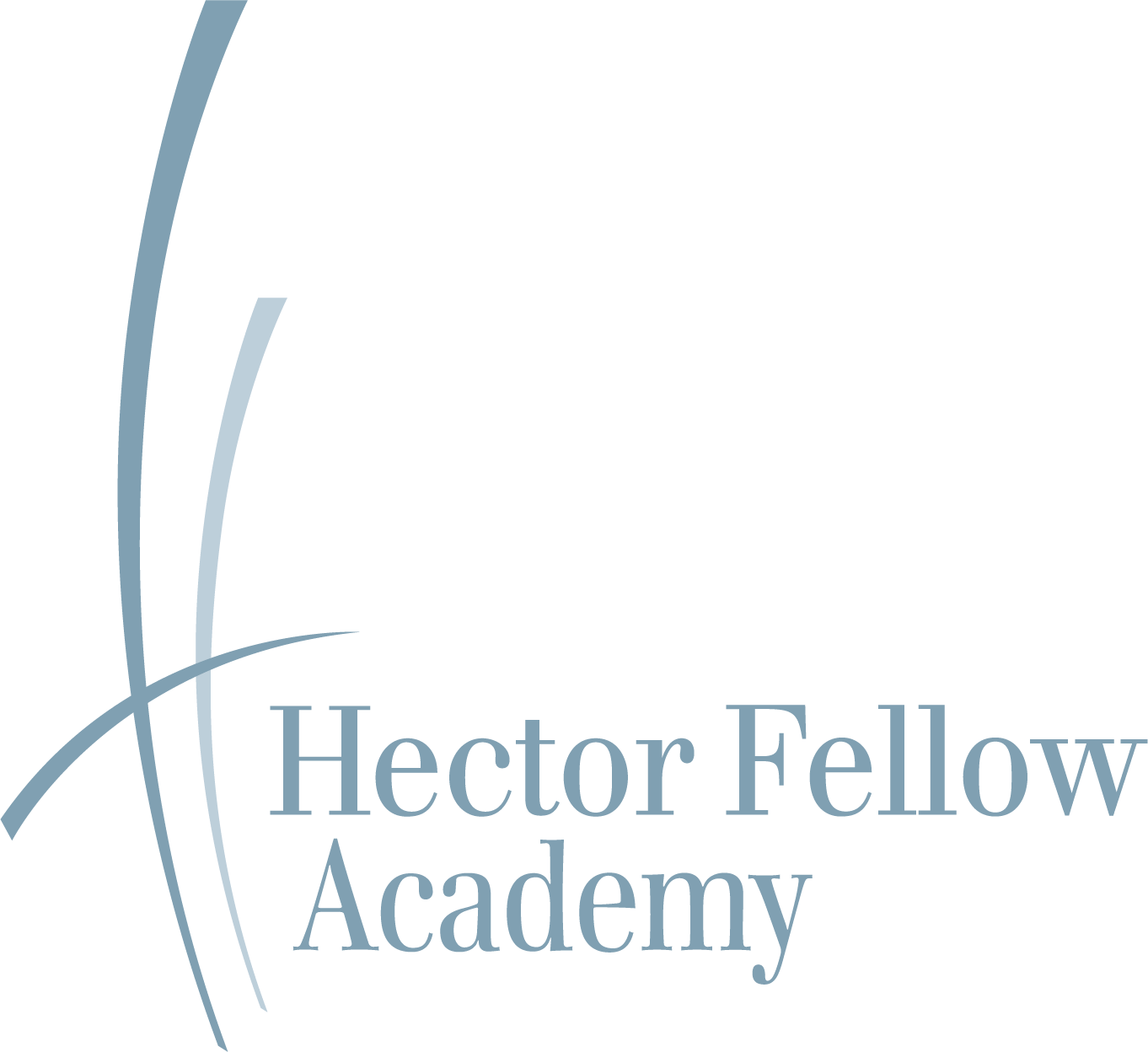Innovations in Single Cell Omics
The human body consists of trillions of cells, but a mutation in one of them can cause cancer. This example demonstrates that biology is not a process driven by averages and highlights the importance of single cell-level studies. The last years have seen a rapid expansion of the field of single-cell genomics, which has enabled paradigm shifts in many fields of biological sciences, ranging from evolutionary biology over stem cell biology to cancer research. The ISCO conference is co-organized by leading centres for genomic and biomedical research in Berlin and Barcelona and aims at bringing together young single cell researchers from different disciplines to enable scientific exchange and foster new international collaborations. Topics will include innovations in single-cell and spatially-resolved technologies, new computational approaches and applications in the medical arena.
Deadline for registration: 30.04.2023 | Registration fee will be 100 €.
Deadline for abstract submission: 28.03.2023
There will be also a Workshop about "Mitochondrial single cell-multi-omics for lineage tracing and genetics".
Venue
Langenbeck Virchow Haus
Luisenstraße 58/59
10117 Berlin
Germany
Time
Program
The program offers exciting keynote lectures and an outstanding lineup of invited speakers who will present during one of the 6 sessions. Participants have the chance to present their work as selected talks or during the poster sessions. We especially encourage juniors to present!
This conference aims at bringing together single-cell enthusiasts as a community, to learn from each other and to create room for exchange!
Keynote Speaker
Dan Landau, MD, PhD
Associate Professor of Medicine, Division of Hematology and Medical Oncology
Associate Professor of Physiology and Biophysics, Weill Cornell Medicine
Core Member, New York Genome Center
Dan Landau is an expert in clonal evolution and aims at charting a roadmap of the basic dimensions that determine the course of cancer evolution to be able to devise therapies that directly address tumor evolution.
Alexandra-Chloe Villani, PhD
Director, Single-Cell Genomics Program, Center for Immunology and Inflammatory Diseases
Assistant Professor of Medicine, Harvard Medical School
Associate Scientist, Broad Institute of MIT and Harvard
Chloe Villani develops and implements single-cell 'omics' strategies and systems immunology approaches to understand the players and rules governing human immune response regulation as a foundation for deciphering human traits and diseases.
Confirmed Speaker
Laleh Haghverdi (Max-Delbrück-Center for Molecular Medicine)
Laleh Haghverdi is an expert in developing mathematical and computational models for the integration and interpretation across multiple single-cell omics modalities.
Kai Kretzschmar (University of Würzburg)
The Kretzschmar lab investigates the role of adult stem cells and their microenvironment in maintaining tissue homeostasis and their contribution to diseases such as cancer using organoid technology and single-cell transcriptomics."
Denis Schapiro (University of Heidelberg)
The Schapiro lab’s expertise lies in the development of novel functional assays and combining them with spatial omics technologies to enable unprecedented insights into tissues in health and disease.
Xiao Wang(MIT)
The Wang Group is developing high-resolution and highly-multiplexed molecular imaging methods across multiple scales toward understanding the physical and chemical basis of brain wiring and function.
Judith Zaugg (EMBL)
Judith Zaugg develops and applies computational biology tools for integrating large-scale biological omics data to address questions in personalized genomics and investigate basic gene regulatory mechanisms and cellular interactions.


